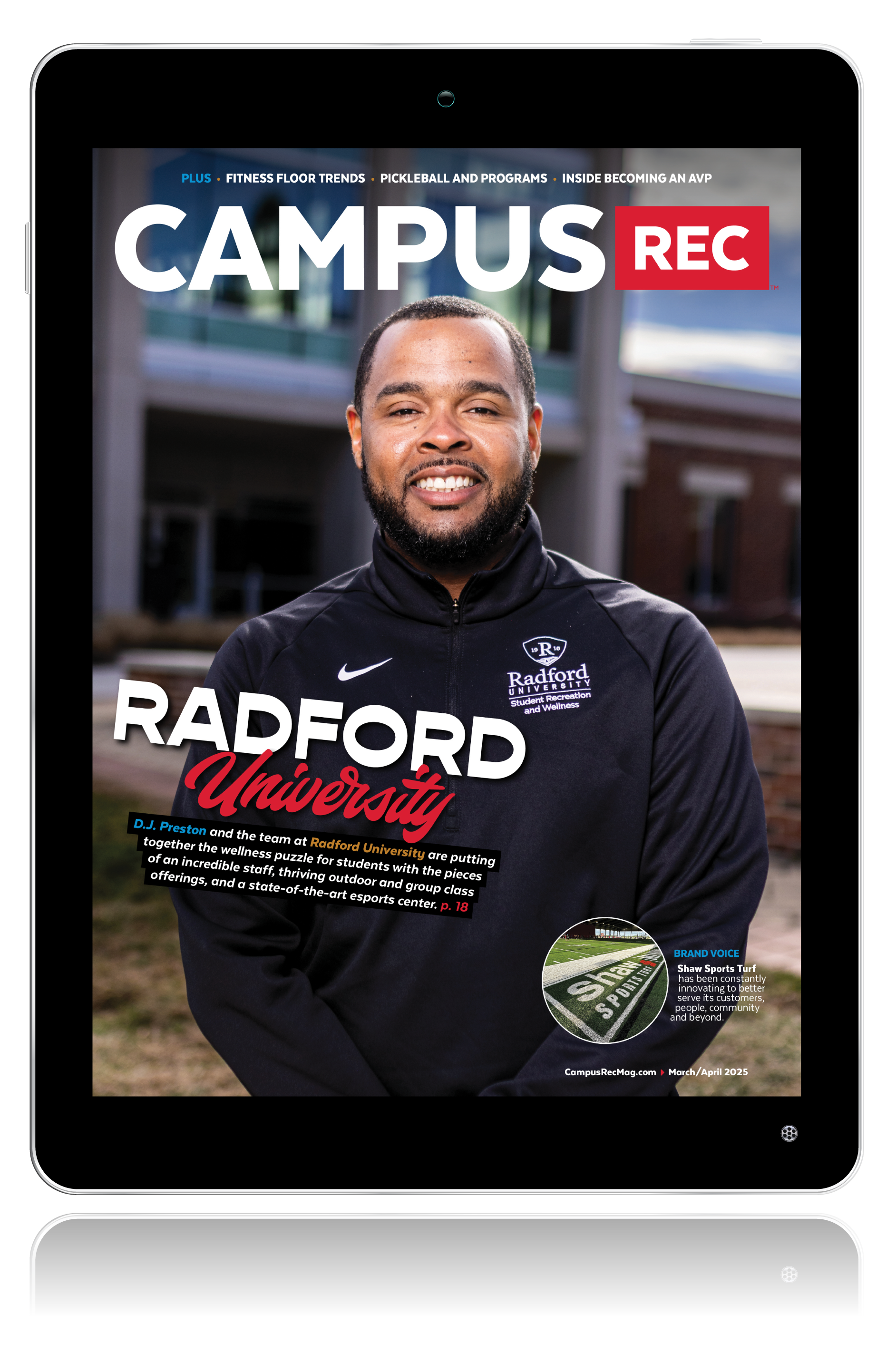Equity, diversity and inclusion (EDI) work is continually evolving based on current events, trends and the changing demographics of U.S. citizens.
As the central hub of most campus activity and a natural place for students of all representations to coalesce, campus recreation is in a prime position to lead innovation in EDI strategies.
That’s why at Florida State University (FSU), Darryl Lovett, the associate director of Campus Recreation, said his department is now centralizing all primary EDI efforts.
“Before this implementation, EDI depended on each individual within their respective program areas,” said Lovett. “This model did not promote consistency throughout the department and solely relied on each person’s interest or devotion. Our new EDI strategy of centralizing and coordinating efforts has been incredibly fruitful.”
In practice, he said EDI is now an addition to staff meeting agendas where discussions around the subject are frequent and consistent.
EXTRA CREDIT: During the 2022 Campus Rec Leadership Summit, a panel comprised of three experts led a discussion on EDI.
Other strategies Lovett mentioned his team is utilizing include developing an EDI resource page for students and staff to share information and refer to for updates. In addition, they created an inclusive programming toolkit to help program areas identify gaps and opportunities to strengthen their commitment to EDI.
For Lovett, ensuring Campus Rec is leading the way in equity at FSU is something he takes to heart.
“Being a staff member of color at a predominately white institution, I am often one of the only staff of color in a room and almost always the only one at the leadership table,” said Lovett. “Because of this, I am personally vested in fostering an inclusive environment for our staff and students and serving in a leadership capacity for institutional EDI.”
One pitfall Lovett has witnessed is departments can overcommit human resources in addressing inclusion without strategically planning or providing other types of resources to the cause. Continuous conversations and purposeful relationships combined with action combat the perception that EDI is simply a performative act.
Lovett said this perception can be struck down with an impactful marketing campaign that showcases a department’s strengths rather than its ambitions.
EXTRA CREDIT: When it comes to EDI, campus recreation can play a vital role. Two universities share what they are up to.
“Highlighting an EDI strength looks like posting photos of the successful Unified Sports Tournament to social media accounts,” added Lovett. “Conversely, performative marketing looks like using stock photos of diverse representation of students because you strive to attract diverse students — not because that is representative of your student population.”
Elsewhere at Austin Peay State University (APSU), David Davenport, the director of University Recreation, said there should be balanced representation of all campus demographics in marketing.
“EDI work is intentional work,” said Davenport. “It can’t be assumed or disregarded. Create opportunities to allow stakeholders to have input and allow them to feel valued.”
A new EDI action step APSU is taking includes developing personality assessments so staff can better understand how others operate. Also, they have begun plans for a student-led “diversity squad” whose major task is to ensure equity is intentional among all programs, events and opportunities.
“I would say, as much as possible, try to be proactive and not reactionary,” advised Davenport. “We have had enough best practices that folks are better prepared for EDI situations. Responding to a situation after it has occurred makes the appearance EDI is not intentional or a priority. Thus, we must allow ourselves to be flexible to meet the needs of all walks of life coming through those doors.”












